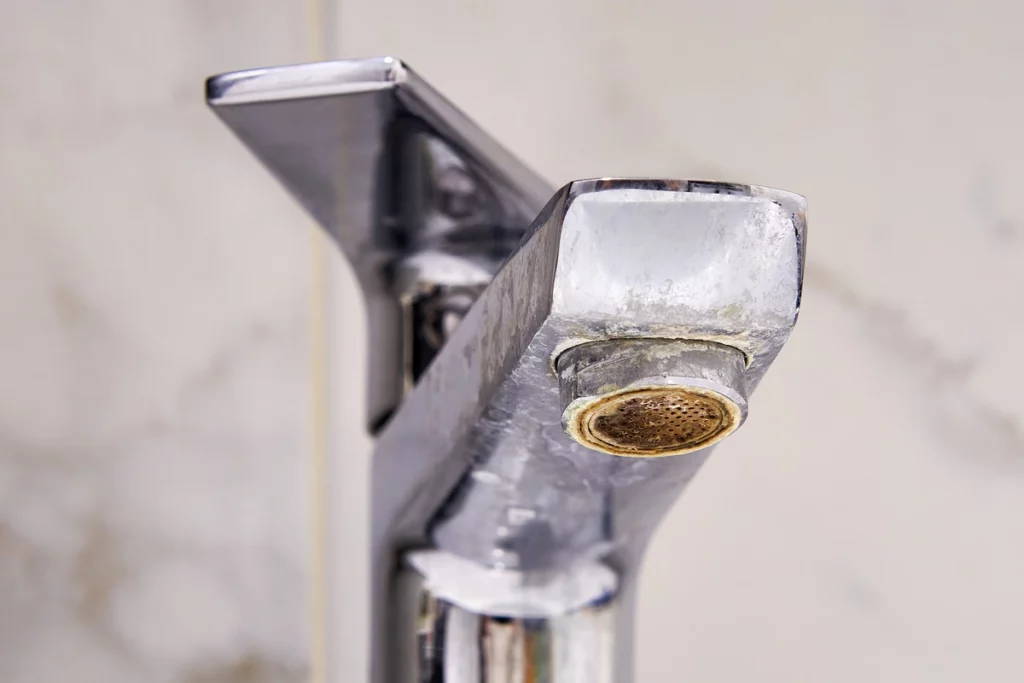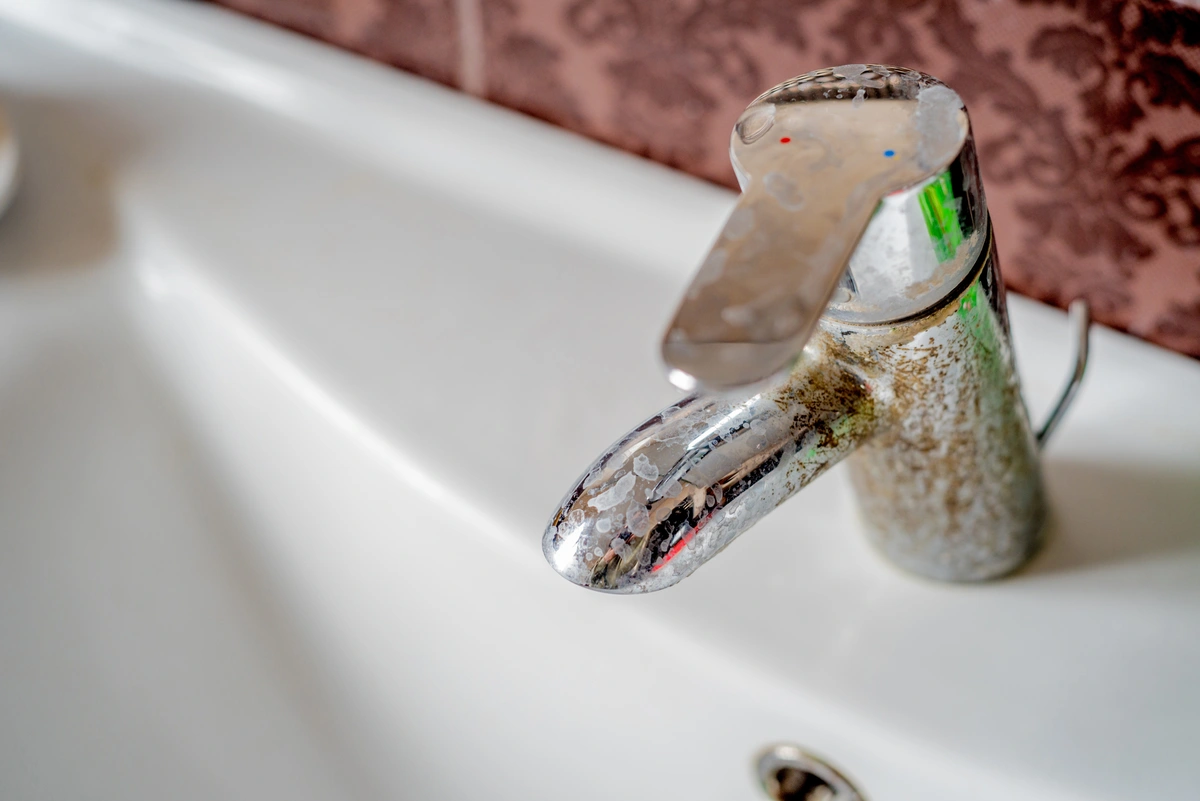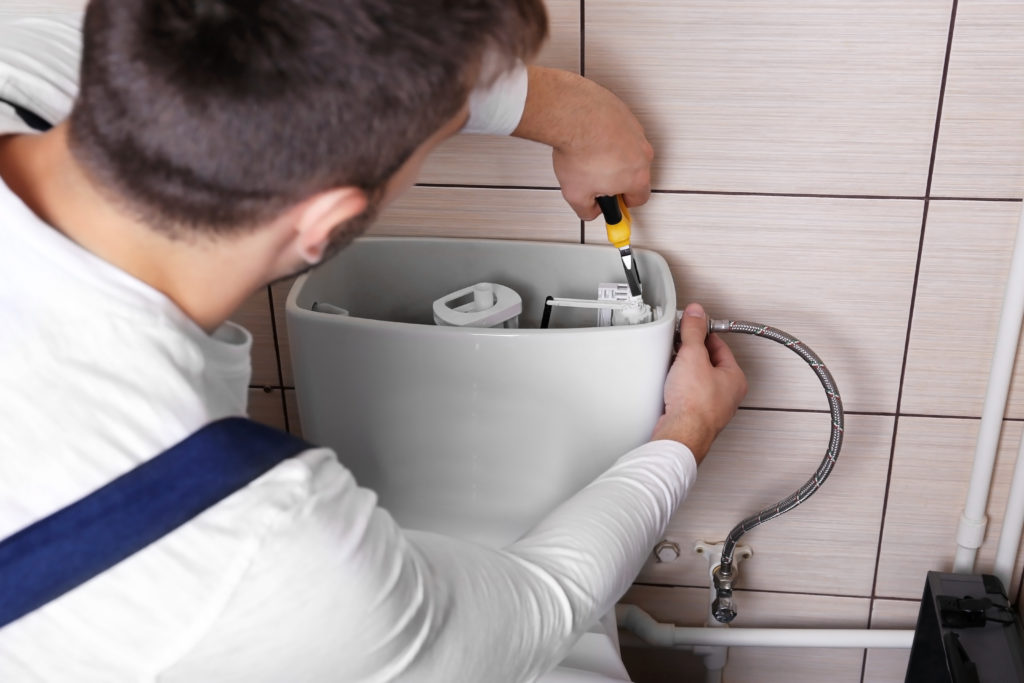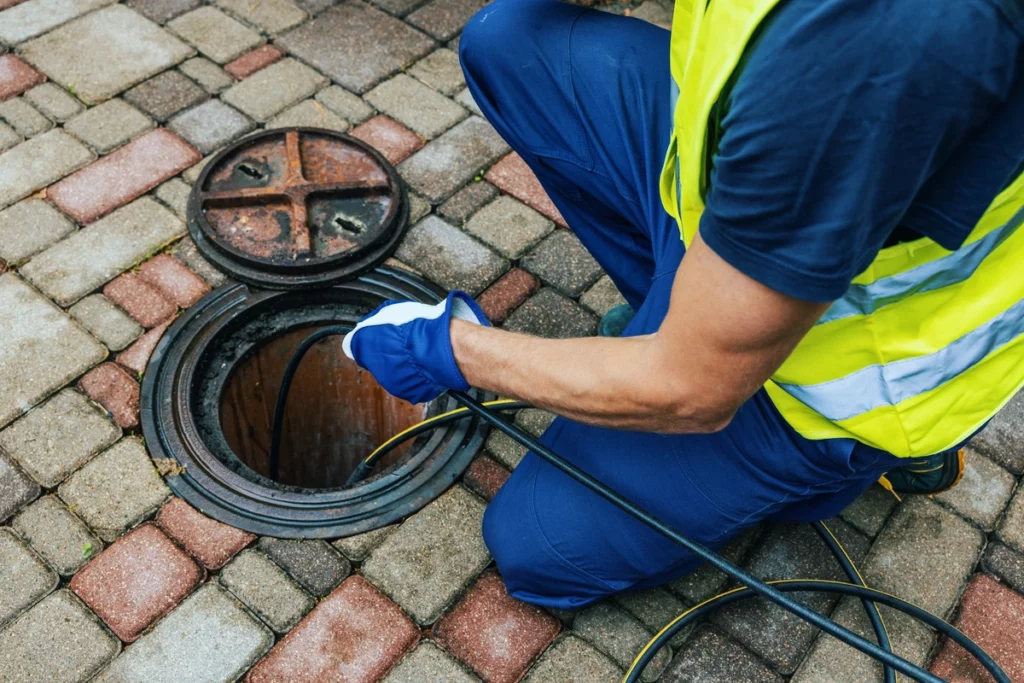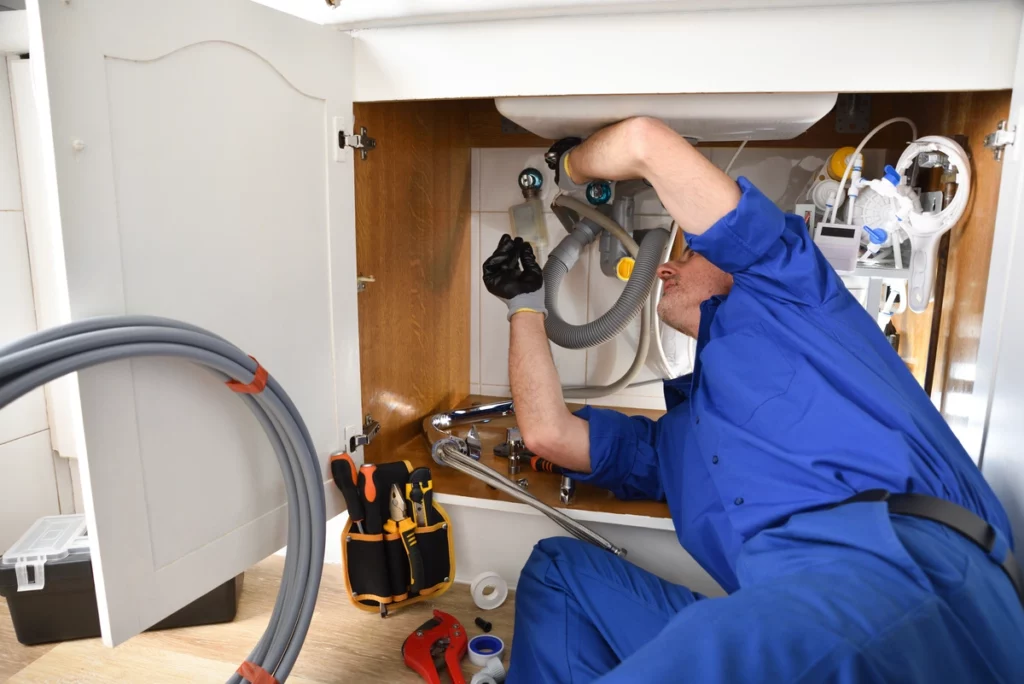It seems like just yesterday, water was water. Now we’re being told that your water is different from your neighbor’s. We’re also constantly bombarded with advertisements and headlines that talk about the negative impacts of hard water and how soft water (and soft water products) can save you from said impacts.
But just how much of a difference is there when it comes to hard water vs soft water?
You’ll come to find that knowing the difference between hard and soft water can help you understand a number of problems you may be having, including:
- Endless water spots on sinks and tubs
- Sediment build-up in the shower
- Dry skin and hair
- Brittle nails
- Certain skin conditions, like eczema
- Faded clothing
Below we’ll talk about the most important differences between hard and soft water and it matters.
Hard Water Vs Soft Water: What’s the Difference?
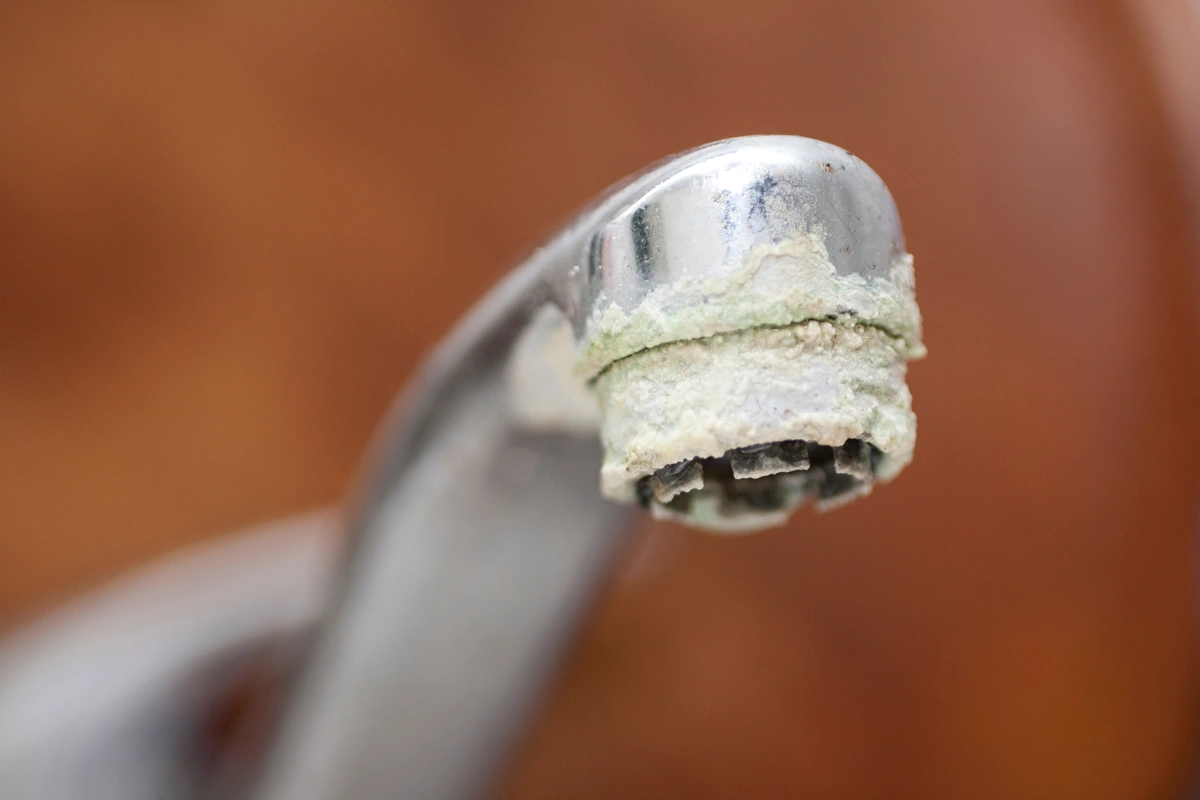
Let’s start by defining hard and soft water to give you a better understanding of why there are essentially two types of water that can run through your pipes.
Defining Hard Water
Hard water is water that naturally contains a large quantity of dissolved minerals, and Approximately 85% of all homes in America have hard water running through their pipes. The primary minerals that cause hard water are calcium and magnesium, and the higher the quantity of these minerals in the water, the higher it will rank on the water hardness scale — which measures the amount of dissolved minerals in one of three ways:
- Grains per gallon (gpg)
- Parts per million (ppm)
- Milligrams per liter (mg/L)
Of course, calcium and magnesium aren’t the only minerals that can be found in abundance in your water, as you can also expect to find iron and other heavy metals, as well as sulfates.
What Creates Hard Water?
City tap water is highly processed, but hard water is something that actually occurs naturally.
When it rains, the water coming down is considered pure. However, once it lands on the ground, it seeps into the soil, bedrock, rivers, and so on. From there, the water picks up whatever minerals are provided by the physician and chemical characteristics in a particular area.
For example, in areas where limestone and chalk are prevalent, the water will be abundant in calcium. Sedimentary rocks like dolomite, magnesite, and carnallite will contribute to the magnesium content.
Therefore, if you live in a state or region known for having naturally hard water, the composition of that water will depend on the physical and chemical makeup of that area.
Defining Soft Water
Soft water is essentially the opposite of hard water — meaning that it contains little to no trace amounts of dissolved minerals. This is part of what makes soft water more desirable for drinking, daily activities, cooking, and baking.
What Creates Soft Water?
Soft water also occurs naturally. It comes from rainfall, just like hard water, and is most notably found in glaciers, icebergs, and mountainous and sandy regions. Mountainous and sandy regions are especially known for soft water as sand and sandy soil acts as a filtration system that removes small particles from the water as it flows.
However, soft water can also be achieved via soft water products, such as whole-home filtration systems, under-the-sink filtration systems, water pitchers with filters, and shower head filtration attachments.
4 Important Differences Between Hard and Soft Water
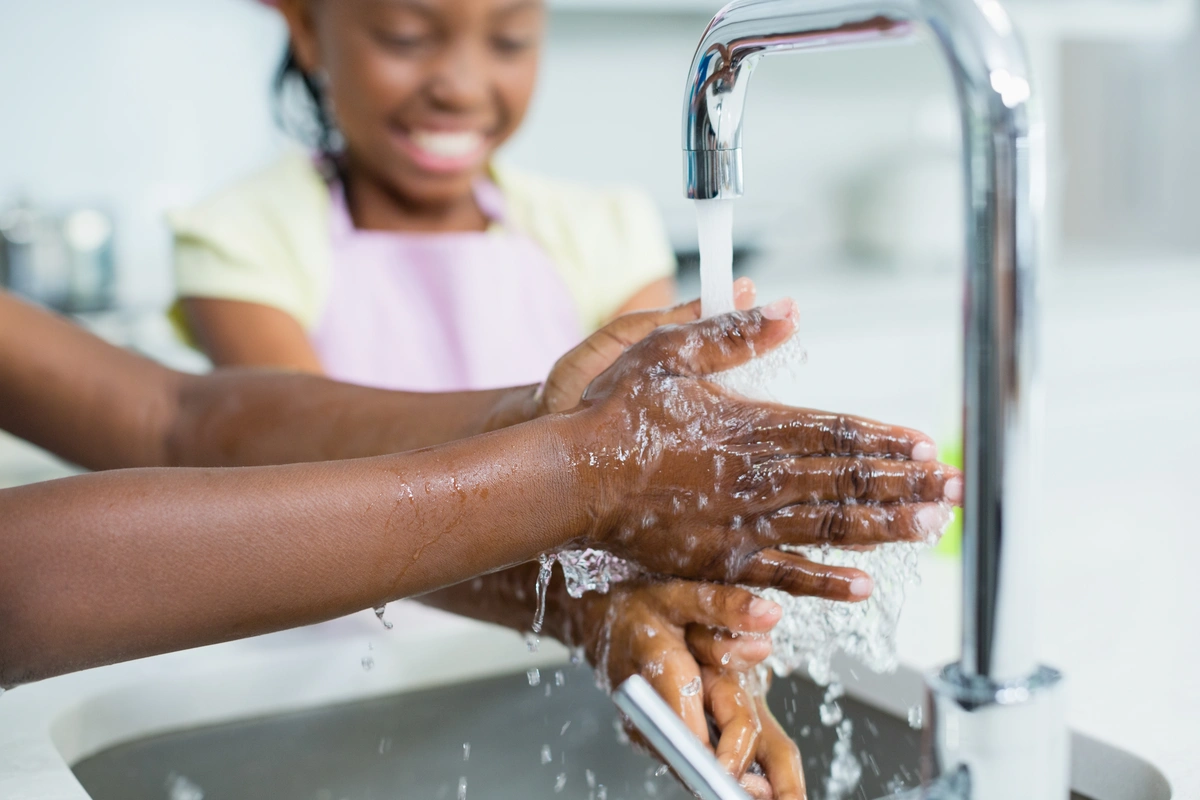
One of the reasons why it’s important to learn the differences between hard and soft water is that hard water often gets a bad rap due to the state of our nation’s tap water. However, naturally occurring hard water isn’t harmful to your health. Of course, that doesn’t mean you want to consume it or use it for your daily activities.
Here are the four key differences between hard water and soft water:
1) Mineral Content
As mentioned above, the primary difference between hard and soft water is mineral content. More specifically, soft water will have less than 17 ppm of minerals (mostly calcium and magnesium) while hard water begins in the 17 to 60 ppm range and increases from there.
2) Skin and Hair Damage
Hard water can be very, well…hard on your skin and hair. This is directly related to having such a high amount of minerals in hard water, which easily strips the skin and hair of their natural oils. Hard water also coats your body with a film of mineral buildup, decreasing the efficacy of your soap and other skincare and haircare products. Soft water, on the other hand, hydrates and nourishes your skin and makes it easier for your products to lather, thereby increasing their efficacy.
3) Appliance Wear and Tear
Hard water can leave mineral deposits on the outside and inside of your appliances, as well as your faucets and tubs. While water stains (limescale buildup that causes the mineral stains) can be unsightly, what they’re doing to your pipes and appliances internally is much worse. Ultimately, hard water can cut the lifespan of your appliances down significantly, not to mention, limescale buildup can also clog your pipes over time.
4) Cleaning
The mineral buildup that hard water causes also makes it challenging to clean, requiring more soap and hotter water to get the job done. This holds true for cleaning your appliances, bathroom, dishes, and even clothing as hard water contributes to the early fading and deterioration of your favorite items.
Hard Water vs Soft Water: The Final Consensus
It’s rather obvious that soft water is much better for the health of your home and family. While hard water isn’t directly terrible, hard water coming from the tap is something you really want to stay away from whenever possible. This is because the average water supply picks up all kinds of chemicals and contaminants that pose health risks from high blood pressure to various cancers.
Fortunately, the experts at A.J. Alberts Plumbing proudly offer installation services for your chosen water softener system to ensure you and your family have water that’s not just soft but also safe for consumption straight from the tap. Give us a call today to learn more about our water filtration services or to schedule your installation!

